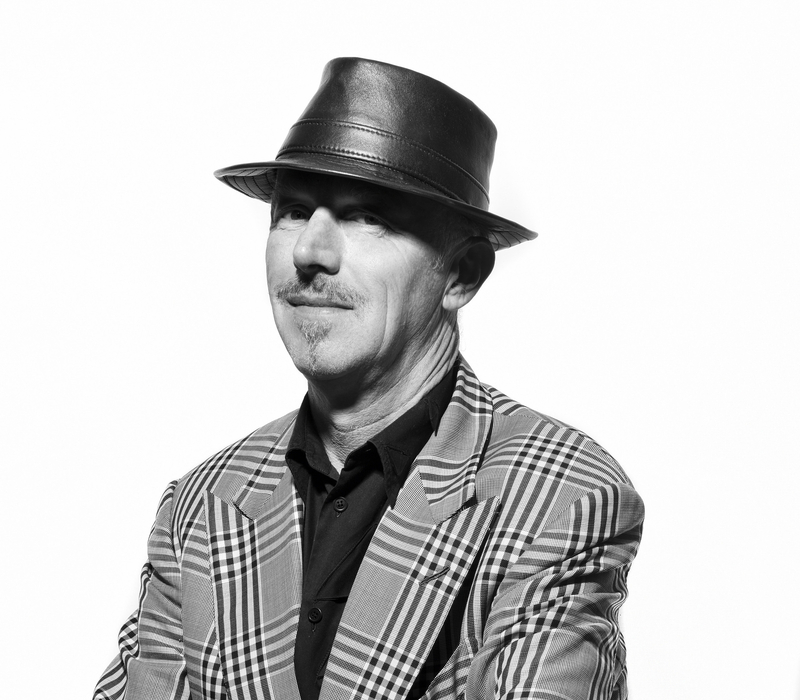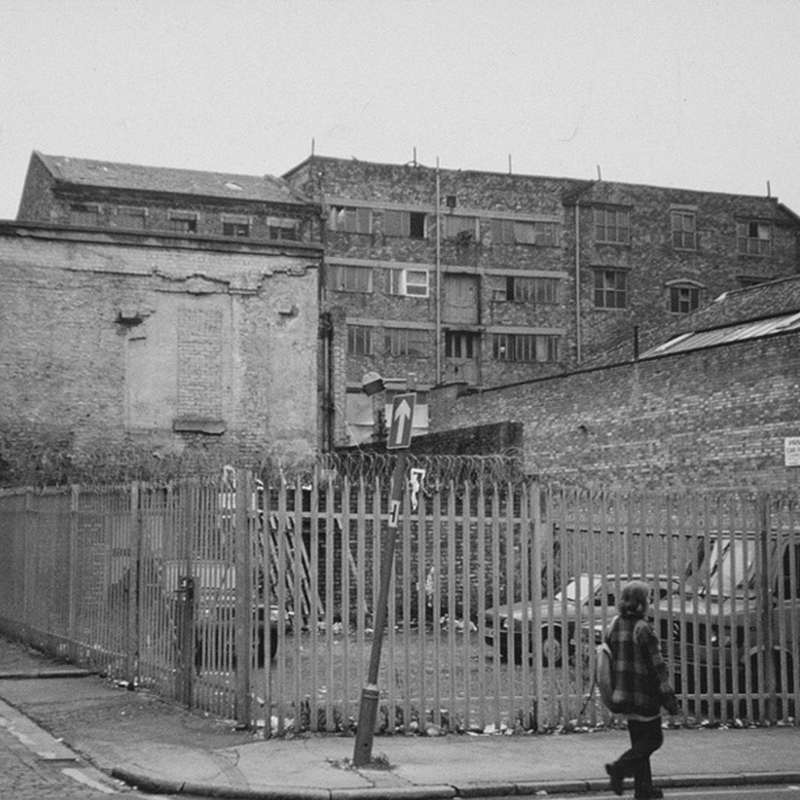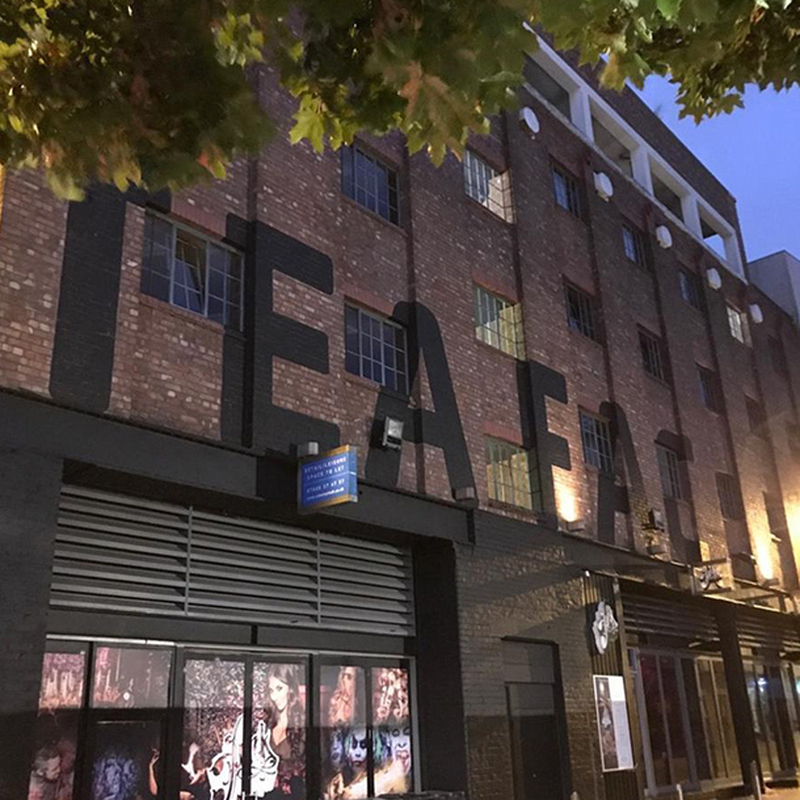Urban Splash was born in an age of chance. 25 years on its co-founder is still talking risky business. By Angie Sammons
EVERYONE knew an architect. Everyone who was part of “the scene”, that is.
Wherever you got the musicians, the painters, the actors, the dancers, the chancers, there they would be, pressed up at the bar.
The rest of the room might have been surviving on a Giro, but this breed, who had served - or were still serving - years of time in our two redbricks… they were certain to do well. Right?
No one knew how they spent their day, but architects threw good parties and were fun to know. And, unless I am mistaken, Simon and Garfunkel never wrote a song about a dentist.
“I do hope that spirit is still there,” says Tom Bloxham. “The art pushers and the design junkies with aspirations not just to be a sausage machine turning out the same stock houses on bland housing estates.”
Great cities look to be making a noise and to be noticed in the New York Times and the Financial Times, not the Manchester Evening News or the Liverpool Echo
It’s a lifetime later and we’re in the slightly raffish Manchester HQ of Urban Splash which, this year, is celebrating 25 years in the regeneration business. It’s been a rattling rollercoaster of a ride whose highlights have included a double dip recession and 40 RIBA awards and, along the way, changing our perceptions of buildings and city centre living forever.
Now documenting it all is an exhibition, launched in Liverpool at RIBA North’s waterfront HQ and set to tour the country. The two-fingered-salute title: It Will Never Work.
In 1993, Hampshire-born, Tiffin School-educated Bloxham epitomised that age of chance. As did his brand new business partner, architect Jonathan Falkingham, and his urban planner brother, Miles, both of whom had been very much part of the youthful, 1980s Liverpool tableau.
Bloxham had turned up in the city in 1990 with the keys to a dead building on Slater Street. Having studied in Manchester, he already ran the successful Afflecks Palace there. This he christened the Liverpool Palace (it was anything but), hoping to attract young retailers to rent stalls, and micro businesses into micro offices.

“I had no idea Quiggins (in School Lane) was already open and doing all that or I would never have set foot in Liverpool,” he reflects. “But sometimes naivety is a great advantage. You get people who look at all the risks and do all the market research and then decide everything is too risky and do nothing.”
Unlike Quiggins, Bloxham’s vision had a bar with its own entrance which meant it could open at night; a cheap-as-chipboard area which he called the Baa Bar. Into it wandered Falkingham wondering if he needed a designer for it. Thanks, but he didn’t. He’d already drawn it up and completed the work himself. Look.
Three years later the pair were in business with a model untried and untested in the north, then a place of hushed and empty city centres after 9pm. Inspired by the conversion of London’s docklands into so-called loft living spaces, Urban Splash’s first big hit was Liverpool’s rundown Concert Square.
“All the agents said it wouldn’t work, you couldn’t get the values in there, but you’ve just got to go and do it. We went to IKEA and bought some kitchens and fitted them. Got guys off the street to strip out the building and designed it ourselves, did the marketing ourselves and did the sales ourselves. And we just said actually, Concert Square is not a crappy part of Liverpool, potentially it’s a very good part. This is not a disused chemical factory that will never operate again, this is a great building that people are going to enjoy living and working in.”

What followed was a mission to heal problematic mills and abandoned industrial monuments the country over, converting them from satanic to sanctuary.
“The great thing about starting a business with nothing is that you learn to lose, so you can try anything,” he says.
“In the beginning we were absolutely about getting together interesting, clever people. There were fashion designers, musicians and, in the early days of the Liverpool Palace, there were three bands on Top of The Pops sharing the same office building.
“There was that creative culture. Cream was being set up, Baa Bar was opening, there were a whole lot of interesting people around who made things happen.
“Today we still have that aspiration of doing interesting things,” he says. “Like prefabs.”
Or, to use the Urban Splash vernacular, modular housing for families, which, Bloxham believes, “is the future”. The company has gone into prefabs big time, buying, for £1, SIG, the East Midlands factory that makes them, and all the people, patents and tools in it.
We’re that rock n roll generation and we’re all going down together
With prefabs in Manchester, Birmingham and the north east on the go, he reveals that the Mersey shore is next, namely a scheme at Peel’s Wirral Waters. The units are mostly for sale but some are up for rent.
"The design actually is very much like traditional Victorian houses,” he says. “All those people who bought flats from Urban Splash… when they moved no one bought a new build house, they went to live in places like Hale or Didsbury or Lark Lane or Canning Street. Basically people were buying up Victorian and Georgian houses. And the reason they buy those is that they are well designed because all the structures are on the outside walls so you can do whatever you want inside. They’ve got high ceilings, big windows and large floor plates so we’ve tried to make our modular houses exactly like that.
“Most people would not try it because there are small minds and the perception that prefabs haven’t worked and it’s been a failed experiment. But we like changing things, doing things our own way and doing things slightly differently to the norm and working with really clever, imaginative people. Making things work.”

Concert Square and the next project, Schoolhouse, in Trafford, earned the company its first two RIBA awards.
“Then the phone started to ring, with people saying come and have a look at Fort Dunlop in Birmingham. Come and have a look at Royal William Yard in Plymouth. We got some confidence and then went out and bought some buildings like Listers Mill in Bradford (Falkingham’s birth city) and Morecambe’s Midland Hotel… going against the grain of the traditional property industry.”
Bloxham is keen to underline Urban Splash’s continuing connections with artists (in the early days it helped FACT sort out its premises). He talks of assisting grassroots projects displaced by gentrification, maintaining, however, that “cities are living, changing, dynamic organisms and change is a positive thing”. His door is always open, he declares, to those who knock with “interesting, credible ideas”.
Ideas, big ideas, lots of ideas, are, Bloxham believes, fundamental to Liverpool’s future.
“The big problem with Liverpool was the de-industrialisation over the last century and the population halving. What’s been fantastic in the recent years is that that has been reversed, in a large part by the European Capital of Culture in 2008, creative industries moving in and people going there.
“A very simple industrial history of Liverpool could read: in the 19th century it made its money by making things, in the 20th century by trading things and in the 21st century it made its money by ideas - and artists are the vanguard of that movement.”

Back at Mann Island, where two floors are taken over by the Urban Splash story, big bold panels bear big bold phrases like “Super Human”, “Risky Business” and “Gold Diggers” to explain the company’s ethos and its bitty narrative down the decades.
It hasn’t all been plain sailing: in the wake of the crash of 2008 came heavy financial losses. Then there were the massive borrowings against large scale projects in several cities. Apartment buyers were pulling out in droves and the banks wanted their money back. Hundreds of Urban Splash staff lost their jobs, but around 70 clung onto the rock until the day the tide turned.
In the intervening years, there have been MBEs for the two founders, accolades and honorary institutional roles galore, yet the 57-year-old, a frequent figure in Sunday Times Rich Lists past, concurs that a big pinch of adversity can do wonders to concentrate the mind.
“Certainly the judgement of people changes, not when things are going well but when things are going badly, and it’s not what life sends you but how you deal with it that’s important.
“We’ve all grown up a bit. We all know what we’re doing now and trying to do it on a bigger stage, a national stage, and doing it more professionally, so inevitably we are focusing on being more specialised.”
Bloxham expresses frustration at local authorities who lack vision.
“A city should have great ambition to work with the best developers and the best architects - wherever they are from. The great world cities look outward with ambition and the most successful look out to the world. They look to be making a noise and to be noticed in the New York Times and the Financial Times, not the Manchester Evening News or the Liverpool Echo.

“Liverpool is a city that should be singing on the world stage. It can still sing on the world stage, but I also believe it needs to up its game. It needs more ambition and not less.
“It’s also worrying that you have a number of these schemes, pre-sold to Far East investors, which are now not going ahead. And that does nothing for the reputation of Liverpool, sadly.”
Is there room for success for all of our big cites in a Northern Powerhouse, or, in the end, will all just be about Manchester?
“Every city and every town has to play to its strengths, work out what makes it different,” he replies.
“But the big issue here is north-south, and the ability of London to suck in all the economy. All our MPs are in London and all the focus is on London. The concept of rebalancing the economy is really important. I think Liverpool has got a big role to play in that. So has Leeds and so has Sheffield. What they shouldn’t be saying is I want to be more like Manchester, I want to be more like Liverpool, I want to be more like Sheffield. Liverpool is amazing: It’s got the port, it’s got the history, the culture, a fantastic arts community, all these things are great things to build upon.”

The Urban Splash chairman claims he has “absolutely no political ambitions whatsoever” but insists nothing can happen without strong public-private sector partnerships, “no matter how tense or difficult the dialogue gets”.
Back in Manchester, the firm is now venturing into huge, 3,000 sq ft lofts for the retirement market “so people can buy their last home in the city centre as well as their first home in the city centre. Keeping those people there is important”.
Bloxham is also toying with the idea of one day developing sheltered housing schemes in the same locales, within a zimmer's stroll of doctors and hospitals - and nightlife.
Or, as he puts it: “Who wants to live in a chintzy old people’s home in the middle of nowhere? We’re that rock n roll generation and we’re all going down together, so let’s have a party.”















